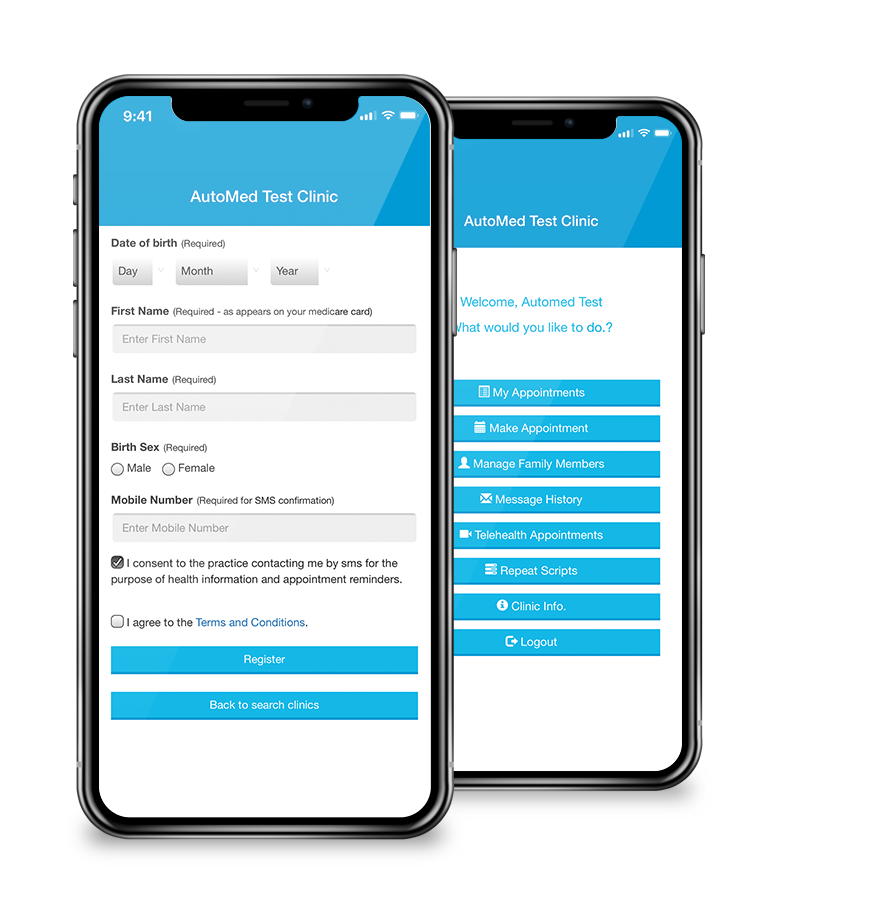The Future of Healthcare: Ingenious Solutions with a Mobile App for Clinics
The Future of Healthcare: Ingenious Solutions with a Mobile App for Clinics
Blog Article
The Future of Medical Care: Why Clinics Required a Mobile Application Today
As the medical care landscape proceeds to evolve, clinics face mounting stress to adjust to person assumptions for higher convenience and availability. The integration of mobile applications can serve as an essential approach for boosting individual interaction and streamlining operations.
Changing Client Assumptions
As the landscape of healthcare advances, patient expectations are going through a substantial improvement. Today's patients are significantly looking for convenience, ease of access, and individualized care.
Moreover, people are becoming extra informed and encouraged, typically researching problems and treatments on the internet prior to appointments. This increased awareness is combined with a need for openness in medical care processes, consisting of cost quotes and therapy alternatives. As an outcome, suppliers are obliged to adjust by adopting digital tools that improve the individual experience.
The assumption for timely and efficient communication has actually never ever been greater, with lots of people thinking about responsiveness a critical component of quality treatment. mobile app for clinics. In this progressing landscape, medical care organizations should identify these altering expectations and take advantage of mobile applications to foster an extra patient-centric technique, making certain that they not just satisfy but exceed the criteria established by today's enlightened customers
Enhancing Individual Involvement

Mobile applications assist in communication between patients and doctor, allowing real-time consultation organizing, suggestions for medicine adherence, and straight messaging functions. These capabilities not just improve convenience but likewise build a sense of liability among people. Mobile applications can supply academic web content customized to private requirements, aiding clients much better comprehend their conditions and treatment alternatives.
The combination of gamification components within health care applications can also encourage patients to engage in healthy actions, enhancing positive lifestyle modifications. Inevitably, boosting client engagement through mobile applications leads to improved health end results, greater patient fulfillment, and a much more joint healthcare experience.
Streamlining Facility Procedures
Simplifying center operations is crucial for enhancing process performance and optimizing client care. The implementation of mobile applications can substantially reduce administrative problems, permitting doctor to concentrate more on patient communications. By automating consultation scheduling, person check-ins, and billing procedures, facilities can reduce wait times and boost general functional effectiveness.
Mobile applications additionally facilitate real-time access to person documents, enabling healthcare professionals to make enlightened choices swiftly. This immediacy not only improves the quality of care however likewise reduces the probability of errors connected with misplaced or outdated info. Leveraging mobile innovation sustains a much more orderly approach to handling patient follow-ups and treatment plans, ensuring that no crucial steps are neglected.
This allows for timely replenishment and click here for info aids stay clear of disruptions in patient care due to equip shortages. By incorporating these functionalities into their daily procedures, centers can create a more efficient and natural setting, ultimately leading to improved patient results and fulfillment.
Improving Communication Channels
Effective communication is frequently mentioned as a foundation of quality health care delivery. In today's busy medical environment, mobile applications can substantially boost communication networks in between clinics, people, and healthcare carriers. By integrating mobile apps into their procedures, clinics can assist in real-time communications, guaranteeing that individuals obtain prompt info regarding their appointments, test results, and therapy plans.
Mobile apps likewise empower individuals to connect directly with their healthcare teams through safe and secure messaging functions. This direct line of communication promotes a sense of engagement and permits instant clarification of worries, which can cause much better adherence to you can check here treatment protocols. Read Full Report Push notifications can advise patients of upcoming consultations or drug timetables, reducing no-show rates and boosting total wellness outcomes.

Staying Competitive in Health Care
In a swiftly progressing health care landscape, companies should prioritize development and adaptability to keep an affordable side. The assimilation of mobile applications right into medical care solutions is no more optional; it is crucial for clinics aiming to boost person engagement, improve procedures, and improve total solution shipment.
As people progressively depend on digital platforms for wellness monitoring, clinics that fail to embrace mobile technology threat dropping behind. A well-designed mobile application can provide attributes such as appointment scheduling, telemedicine assessments, and accessibility to medical records, offering individuals with comfort and cultivating loyalty.
Rivals are also buying mobile options, so remaining in advance needs continuous enhancement and staying notified concerning technological advancements. Clinics should not just execute mobile applications but also participate in normal updates and improvements. Ultimately, the effective integration of mobile innovation will certainly distinguish forward-thinking health care organizations and set the benchmark for patient-centric treatment in an electronic globe.
Verdict
Finally, the assimilation of mobile applications in facilities is necessary to address the developing landscape of patient expectations. By boosting individual interaction, improving operations, and improving communication networks, clinics can substantially boost health outcomes. Furthermore, the adoption of mobile technology settings clinics to continue to be affordable in a significantly digital health care setting. Ultimately, the critical execution of mobile apps stands for an important step toward delivering easily accessible and personalized medical care, thus satisfying the demands these days's empowered people.
Ultimately, boosting client interaction with mobile applications leads to enhanced health and wellness outcomes, greater client contentment, and an extra joint medical care experience.Mobile applications also assist in real-time access to patient records, allowing health care experts to make enlightened decisions promptly. In today's fast-paced clinical atmosphere, mobile applications can considerably improve interaction networks between centers, clients, and health care service providers.Mobile applications additionally empower individuals to connect directly with their medical care groups through protected messaging features. Eventually, the tactical execution of mobile applications stands for a critical action towards delivering personalized and easily accessible medical care, consequently fulfilling the requirements of today's encouraged patients.
Report this page